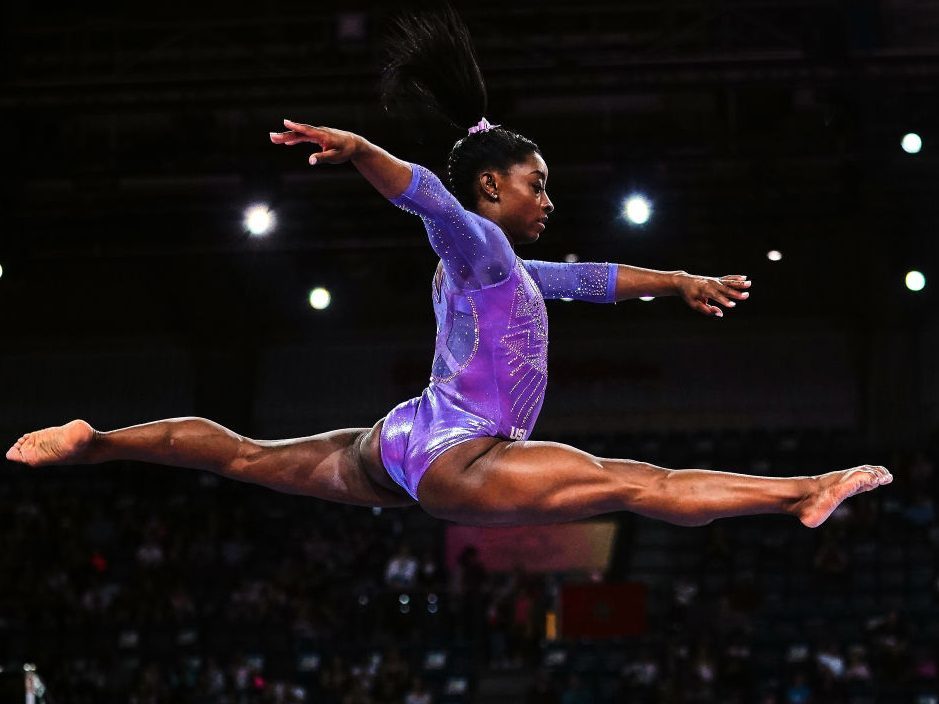Friday
The following essay ran eleven years ago during the 2010 Winter Olympics. Simply replace what I say below about skaters with gymnasts. And hope for less uncertain times.
Reprinted from February 27, 2010
I sense a supernatural presence as I watch skaters, in groups of four, dart in an out of the line while miraculously staying upright. I gaze in awe as skiers fling themselves down dangerously steep slopes at breakneck speeds, all the while making cuts that put them virtually horizontal to the ground. When a skating couple moves in perfect synchronicity across the ice, time stands still. For all the garbage associated with the Olympics– the politics of choosing a venue, the commercialism, the drugs, the judging controversies—one just has to see a skier or snowboarder doing flips in the air to forget everything else.
The sights rivet us in part because they let us know that it is possible, even if only for a few seconds, to transcend our earthly realm. When, in The Odyssey, Odysseus picks up a discus and sends it flying, it makes sense that the goddess Athena would be there applauding the effort. Here’s the passage:
He leapt out, cloaked as he was, and picked a discus,
a rounded stone, more ponderous than those
already used by the Phaiakian throwers,
and, whirling, let it fly from his great hand
with a low hum. The crowd went flat on the ground–
all those oar-pulling, seafaring Phaiakians–
under the rushing noise. The spinning disk
soared out, light as a bird, beyond all others.
Disguised now as a Phaiakian, Athena
staked it and called out: “Even a blind man,
friend, could judge this, finding with his fingers
one discus, quite alone, beyond the cluster.
Congratulations; this event is yours;
not a man here can beat you or come near you.”
(trans. Robert Fitzgerald)
Until reading an article in Aethlon: The Journal of Sports Literature, I didn’t realize that literature has played an important role in defining the modern Olympics. In a 2008 article authors Jeffrey O. Segrave and James G. King compare the writings of Coubertin, the founder of the modern Olympics, with passages in European literature since the Renaissance. The article is a bit dense—you can read it here –but it’s got great examples. Literature had been so successful at associating the games with a perfect balance of mind, body, and spirit, Segrave and King point out, that Coubertin’s vision seemed obvious to people.
To cite one of their examples, here’s a passage from Shakespeare’s Henry VI, Part III. Henry is seeking to rally his faltering troops with the image of winning Olympic honors:
Yet let us all together to our troops,
And give them leave to fly that will not stay,
And call them pillars that will stand to us;
And, if we thrive promise them such rewards
As victors wear at the Olympian games.
This may plant courage in their quailing breasts;
For yet is hope of life and victory.
Segrave and King conclude:
We suggest that references in literature to the ancient games, especially during the 18th and 19th centuries, created a favorable and generally unified perception of the Olympic games that obtained across time and impacted upon a European consciousness in such a way that Coubertin’s ideas about an internationalized and indeed Hellenized form of the games did not seem at all alien or problematic. From the moment in English literature in 1595 that the dramatist Thomas Kyd first proclaimed that athletes competed in the games in order “to grace themselves with honor,” the Olympics have been eulogized in prose and extolled in verse as a dignified, noble, and indeed honorable form of sport, one that serves as the quintessential and most hallowed model of all, especially with an attendant moralism and enlightened, non-materialistic ideology. . . . [T]he games have endured in history as instantiations of excellence, grandeur, enlightenment, and transcendence, the most sublime expression of sport . . .
And then, to acknowledge that literature also had a hand in some of the negative sides of the Olympics, especially in their early days, Segrave and King add that works referring to the Olympics frequently had “connotations of noblesse oblige that were at the same time masculinist, socially elitist, and steeped in a traditional Anglo-Saxon hegemony.”
But that aside, literature has recognized, within the idea of the Olympics, something that goes deep into the human spirit. For a few precious moments, watching this event or that, we get to step out of ourselves and imagine ourselves as gods.


